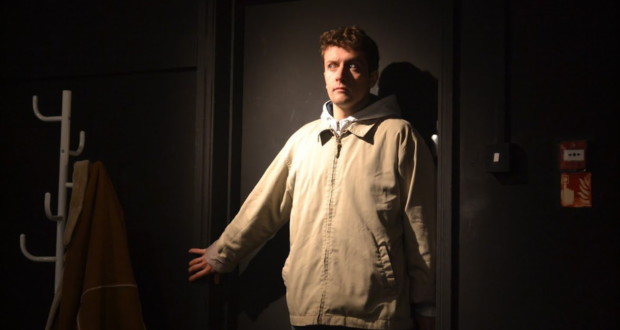A funny and powerful, intimate portrait of people’s lives that has something to say about the wider world.Summary
Rating
Good
A simple misunderstanding over the pronunciation of Andrea is the basis of both the tension and the comedy in The Lodger, written by Lauren Lewis and directed by Sam Williams and Rachel McKay. The play is set in the living room of a working class family in Woolwich who take in a wealthy overseas student as a lodger. This suave Italian stranger disrupts the unhappy equilibrium of the family.
The play leans heavily on dramatic irony. The audience is quickly introduced to the characters and their conflicts. We then come to understand the unhappiness they hide from each other as we see them interacting separately, which increases the tension.
Comedy and drama are balanced well, as witty lines about mispronouncing the names of artists are offset by piercing dialogue that reveals character and raises the tension. Most of the humour comes from character interaction, which keeps the play grounded in its domestic setting.
The tension rises steadily throughout the play, illuminating a family who were only maintaining an outward semblance of happiness, and who fall apart when they are prodded by an outside force. Emotions that are suppressed emerge in a way that feels natural and in tune with the characters. In a crucial scene towards the end of the play, the burden of knowing a family member’s secret is played out in a masterful performance from Julian Bailey-Jones, taking the dramatic irony of the play to new, powerful heights.
Despite the intense drama of a family falling apart, The Lodger avoids ridiculous telenovela melodrama and is both authentic and impactful. Deft writing from Lewis is complemented by superb acting from the whole cast, who bring out the genuine humanity in their roles. The characters are broadly sketched, and although we are with them for only a short time, each has the three-dimensionality of a real person with a life beyond the living room we observe.
This is a domestic drama that tackles the big issues of migration, class and intergenerational conflict. These issues are explored through the lens of interpersonal conflict, subtly bringing the wider political debates into the domestic setting. The intersection of class conflict and xenophobia is explored, although the issue of intergenerational conflict raised in the play remains undeveloped. With a longer running time there would perhaps be greater scope to explore this issue more fully.
The play ends abruptly after only 70 minutes when the family and their guest are at their lowest point. I would have preferred to stay longer with these characters and see what lessons they take from the emotionally explosive final moments of the show. It concludes with the characters at a low point, but with the relatively positive message that we are all flawed people; we all make bad decisions, and that it is not what we are but who we are that leads us to take actions that can destroy our most cherished relationships.
The Lodger is a funny and powerful, intimate portrait of people’s lives that has something to say about the wider world. It gives you the feeling of being invited into this family’s living room and spending a short time with these people, then going out into the world to think about the universal nature of what we have learnt.
Written by Lauren Lewis
Directed by Sam Williams & Rachel McKay
The Lodger plays at Lion and Unicorn Theatre until 21 October. Further information and bookings can be found here.
 Everything Theatre Reviews, interviews and news for theatre lovers, London and beyond
Everything Theatre Reviews, interviews and news for theatre lovers, London and beyond



